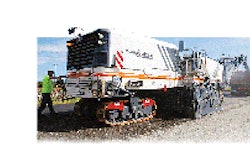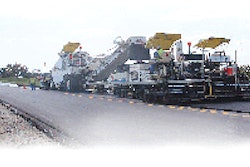Get agency pros out of the closet
By Kirk Landers
Over the past few decades advances in technology, methodology and best practices have made for vital information sessions at the annual meetings of industry groups and trade shows.
 [email protected]
[email protected]Attendance at those sessions is invariably strong, but one group is always under-represented: engineers from government road agencies.
It is axiomatic among seminar planners in the road industry that agency attendance at educational venues will be mostly limited to those who can make a day trip of it by car. Overnight stays and airline travel are dearly rationed in most road departments, and the nicer the destination, the less likely it is that agency people will come from beyond commuting distance.
It’s not just a budget thing.
“It’s an image problem, especially,” a trade show executive once told me. “Some reporter takes a picture of Joe Smith having a drink at a Las Vegas blackjack table and writes a story about how Joe spent three days in Vegas on the taxpayers’ dime, and all of a sudden Joe’s boss and all the bosses between him and the governor look like big-spending louts.”
So the engineers who design structures, devise drainage and safety schemes, select pavement components and chemistry — the people who make the decisions that determine whether a $30 million road project will last 10 years or 50 — those folks stay home and wait for the information to reach them by other means . . . usually, papers posted on the Internet.
It’s like having elite military personnel read about jungle training at a base in the United States instead of getting trained in a tropical jungle in Asia or Central America.
The end result of sequestering agency engineers has not been catastrophic for the American taxpayer. Transportation departments get the information eventually. Perhaps some of the work they do prior to learning of a new technology or method could have been done more effectively, but by and large the taxpayer is not severely disadvantaged by the delay.
Or are they?
The time — and money — it takes to get information to decision-making agency engineers works against smaller, entrepreneurial businesses. Small businesses generate a lot of new ideas in a capitalistic economy, and they get a lot of lip service in election years, but few road industry entrepreneurs have the means to get their message to key engineers, one city and one state at a time.
So some creative ideas for doing things differently are not getting through to our agencies, and that undoubtedly contributes the sometimes glacial pace of change in the road industry.
The other great drawback of closeting our agency professionals is that their own expertise and the wealth of their experiences don’t get shared. Contractors don’t hear from them and neither do thousands of their colleagues in other states and cities.
As we get ready for another winter season of annual meetings and trade shows, let’s hope some agency executives and mayors and governors take a new look at educational travel for road professionals. A little common sense would solve all the reasonable objections to this practice, and a little courage would take care of the rest.













